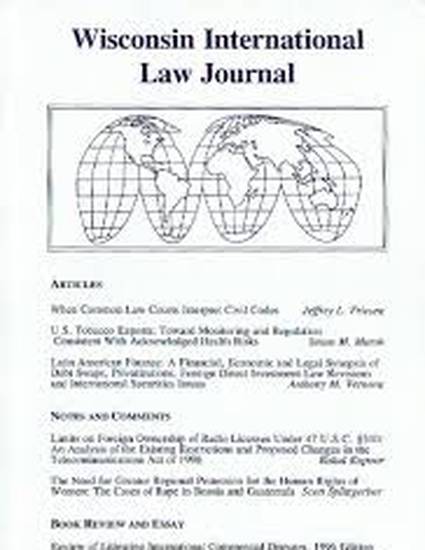
Article
The Efficiency of the Common Law: The Puzzle of Mixed Legal Families
Wisconsin International Law Journal
(2012)
Abstract
Many legal economists have suggested that the common law system is more conducive to economic growth than the civil law system. Such literature has been popularized within the legal origins movement. From the perspective of such literature, the existence of hybrid, pluralist or mixed legal jurisdictions is a puzzle. Why has civil law persisted while common law is more efficient?
This paper discusses the efficiency of the common law hypothesis from the perspective of hybrid jurisdictions. We argue that the complexities of legal systems require a more nuanced analysis. The consequence is that there is no single efficient outcome, thus undermining the “one-size-fits-all” theory of the legal origins literature.
Keywords
- common law,
- efficiency,
- mixed jurisdictions,
- Louisiana,
- Quebec,
- Scotland,
- South Africa
Publication Date
2012
Citation Information
Nuno Garoupa and Carlos Gomez. "The Efficiency of the Common Law: The Puzzle of Mixed Legal Families" Wisconsin International Law Journal Vol. 29 Iss. 4 (2012) p. 671 - 693 Available at: http://works.bepress.com/nunogaroupa/61/
